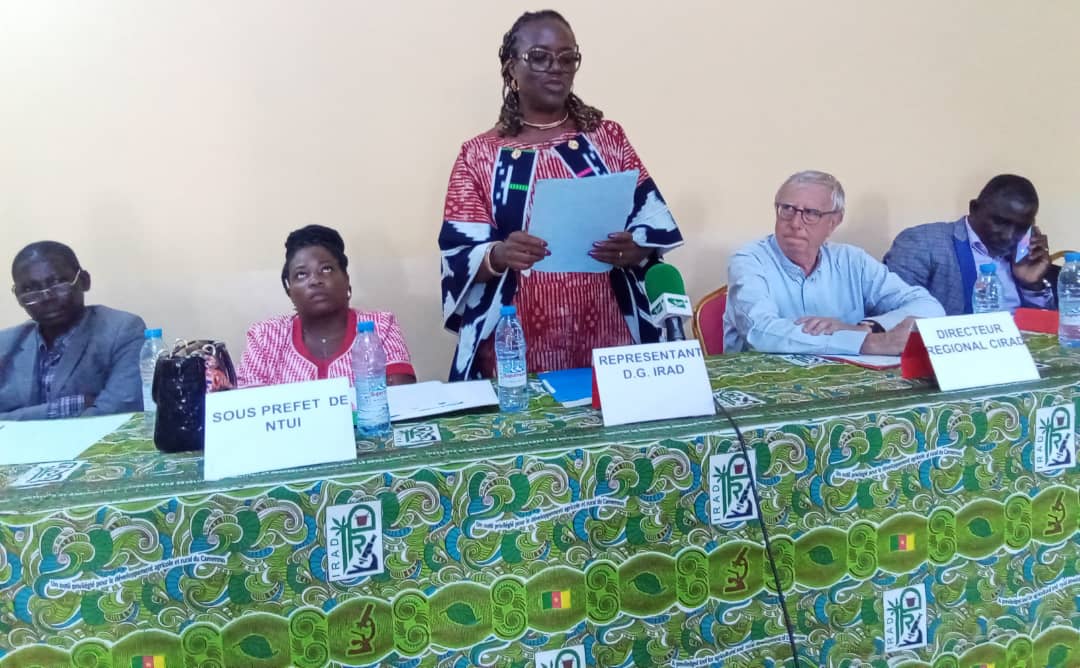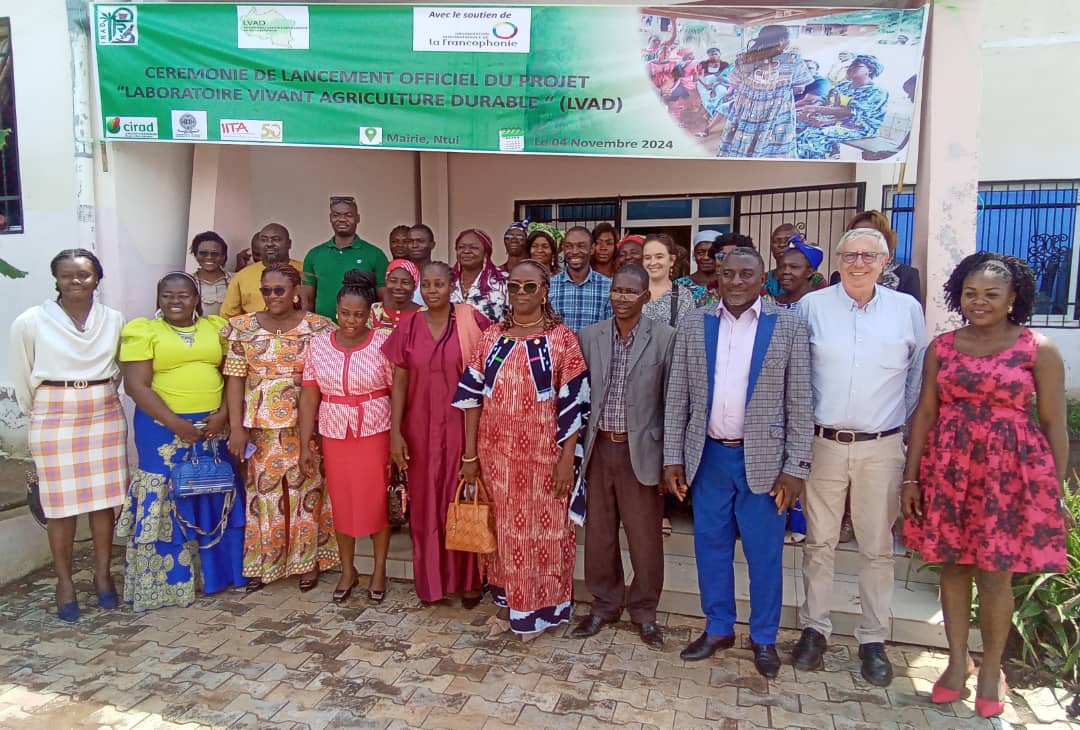
Funded by the Organisation Internationale de la Francophonie (OIF), the Institute of Agricultural Research for Development (IRAD), headed by Dr Noé WOIN, solemnly launched the activities of the Living Laboratory for Sustainable Agriculture (LVAD) project in Ntui (Centre region) on 04 November 2024.
“To acquaint stakeholders with the concept and approaches of the LVAD project, agroecology, Living Labs and the Co-creation process; to present the living lab already in existence as part of the Central and Eastern Africa through transdisciplinary Agroecology Living Labs (CANALLS) project and gather stakeholders’ expectations; to report on the diagnostic survey; to complete the participatory mapping of stakeholders; to create a structural analysis of the causes and effects of the main challenges facing stakeholders in the food production and value chain; to identify and adapt agroecological practices and their combinations to overcome the most critical challenges identified by stakeholders; to prototype innovative systems for the 2024 season; to create a structural analysis of the causes and effects of the main challenges facing stakeholders in the cocoa production and value chain; and to identify and adapt agroecological practices and their combinations to overcome the most critical challenges identified by stakeholders.” In line with the government's agricultural vision, here are the main objectives of the project, which was the subject of a 03-day workshop (04 to 06 November) in the town of Ntui.

“We need to reinvent our agricultural practices, and this will be done through a rethink of agricultural research, more inclusive research”, argued the Head of the Mbalmayo Agricultural Research Centre (CRA), Dr Eunice NDO, personal representative of the IRAD Director General, during the ceremony to launch the project's activities. Local authorities attended, as did the project's partners, especially Thierry LEROY, CIRAD's Regional Director for Central Africa, and Professor Zachée AMBANG, representative of the University of Yaounde 1.
According to Dr Hermine Claudine MAHOT, the project leader and researcher at IRAD, the expected outcomes include: awareness-raising among local authorities and stakeholders in the food sector value chain; mastery of the food sector operating system with all its influential and influenced stakeholders; identification of challenges by the various stakeholders, with the most relevant being selected; and identification and selection of technical solutions incorporating local and scientific knowledge for future experimentation.
Ultimately, the LVAD project aims to limit deforestation and, above all, boost food crop production to ensure long-term self-sufficiency and food security in Cameroon.
The communication unit
